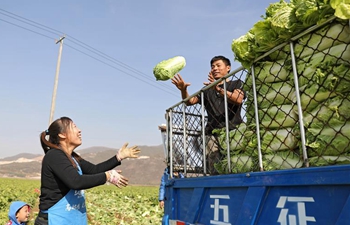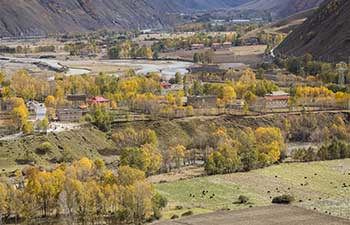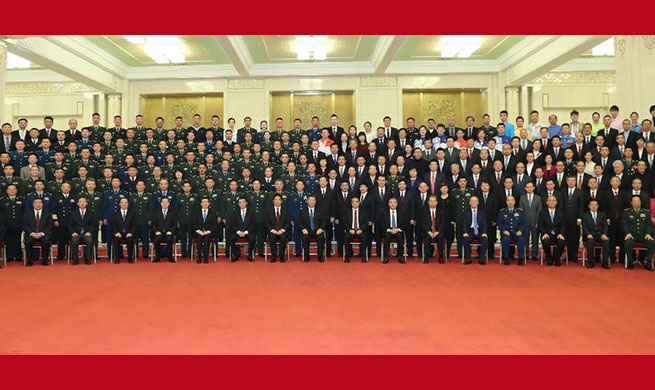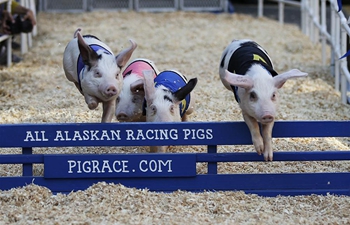LONDON, Oct. 17 (Xinhua) -- With its freezing temperatures, unbreathable air, and solar and cosmic radiation, Mars is absolutely not hospitable to humans. However, a new exhibition in London sheds light on what farming may look like on this forbidding planet.
The exhibition "Moving to Mars" at the Design Museum in London, scheduled to run from Oct. 18 to Feb. 23, 2020, explores how sending humans to Mars is not just a new frontier for science but also for design.
Over 200 exhibits, including original objects and material from the U.S. National Aeronautics and Space Administration (NASA), the European Space Agency (ESA) and the private American aerospace manufacturer SpaceX, along with works from U.S. industrial designers Raymond Loewy and Chesley Bonestell plus new commissions from design company RAEBURN, clothing designer Anna Talvi and industrial designer Konstantin Grcic tell the complete story of designing for Mars.
The exhibition features a section about farming on Mars. It says that growing plants on Mars will be done in various ways. Some plants will be grown in greenhouses, some in lab-style tanks and some using hydroponics (without soil). Hydroponic farming kits by GrowStack are among the highlights of the exhibition.
One of the major difficulties in colonizing Mars is that there is no life and very little water on the planet. Farming on Mars will have to rely entirely on materials brought from Earth. With thin atmosphere and little nutrients in the soil, humans will almost certainly have to rely on hydroponic farming, according to the museum.
"We need to find alternative ways of farming on Mars and technology for the future. This is a real connection between where we are and what future farming looks like on Mars," Josephine Chanter, director of audiences of the museum, told Xinhua.
Wieger Wamelink, an ecologist studying farming on Mars, reckons that the frontrunners for Martian crops will be potatoes, which are rich in energy and vitamins, beans and peas, and crops that make a meal and give flavor, including tomato, rocket, cress and rye.













